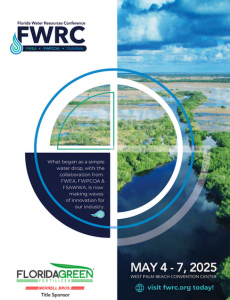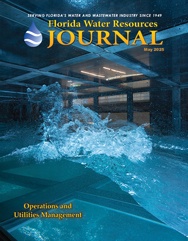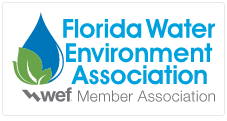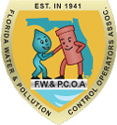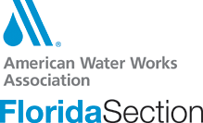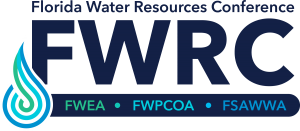Category Archives: Current News
STATE OF THE WATER INDUSTRY SURVEY
If you work in the water industry we want your input! The Florida Water Resources Journal is conducting a survey on various aspects of the water and wastewater industry to rate current issues and challenges and help set the agenda for the future. It doesn’t matter what your position is, or what company your work for, if you’re in water your opinions count! Encourage your coworkers to participate, too.
AWWA, Black Water Professionals Alliance to Collaborate on Water Workforce
The American Water Works Association (AWWA) and the Black Water
Professionals Alliance (BWPA) have announced a collaborative agreement to
support development of a strong and diverse water workforce.
The memo of understanding (MOU) between the organizations is aimed at
expanding opportunities and strengthening the pipeline of skilled professionals in
the water industry. It specifies AWWA and BWPA will collaborate to support
career advancement, leadership development, and industry engagement for Black
professionals in the sector.
Key areas of focus include:
- Expanding industry networks by fostering regional engagement.
Supporting workforce development by promoting training, mentorship, and
career advancement opportunities for professionals at all stages of their
careers. - Inspiring Black professionals to serve in leadership roles within the water
industry. - Connecting with Historically Black Colleges and Universities (HBCUs) by
creating career pathways for students and graduates from HBCUs) to enter
and thrive in the water sector. - Sharing resources and opportunities by promoting industry events,
scholarships, and professional development programs to a wider audience.
“This collaboration is a significant step toward ensuring Black professionals have greater access to resources, networks, and leadership opportunities within the water industry,” said Patricia Harvey, BWPA president.”Together, BWPA and
AWWA will work to create meaningful pathways for career growth and
professional success.” John Albert, AWWA’s deputy chief executive officer, added, “The water sector relies on a strong and engaged workforce. Partnering with BWPA allows us to further support professional development and bring fresh perspectives to the
industry.”
DBIA Opens 2025 Project/Team Award Submissions With Streamlined Process
The Design-Build Institute of America (DBIA) has officially opened submissions for
the 2025 Design-Build Project/Team Awards, and this year, the process is easier
than ever. With a streamlined application designed to reduce redundancy,
applicants can now focus on what matters most—showcasing their project’s
innovation, collaboration, and impact.
For the first time, optional questions have been introduced for those seeking
consideration for specialty awards, including:
- Best in Virtual Design and Construction (VDC)
- Trailblazer in Inclusive Growth
- Enlightened Owner
- I.N.S.P.I.R.E.D. Owner
These updates ensure applicants have greater flexibility while still providing
opportunities to highlight the unique strengths of their design-build projects.
Key Dates:
- Submission Deadline: May 30, 2025
- Extended Deadline: June 6, 2025 (additional fee)
- Awards Ceremony: Nov. 6, 2025, at the Design-Build Conference and Expo
in Las Vegas
Before getting started, applicants are encouraged to review the FAQs and
submission guidelines, which provide answers to common questions, guidance on
required resources, and documentation and suggestions on key team members to
involve in the application process.
What Does It Take to Be an Award Winner?
For those looking to craft a strong submission, DBIA has developed resources to
help applicants understand what makes an award-winning project:
- Listen to the podcast: Design-Build Delivers: How DBIA’s Design-Build
Award Winners Continue to Redefine Project Excellence. It offers tips and
insights for creating a compelling submission. - Explore the DBIA projects database: See past winners and get inspired by the best in design-build.
- Coming Soon: A behind-the-scenes look at last year’s winners. DBIA will
soon release a new design-build delivers podcast bonus content episode
revisiting the 2024 award-winning projects, including University of Arizona
Applied Research Building, NREL Research and Innovation Laboratory, and
Holt Watters Field Camp - This special episode will look at these projects; lasting impact, the creative ideas
that set them apart, and the unusual—and unforgettable—moments that helped
them rise to the top.
Submissions Are Open Now
DBIA’s annual awards program celebrates the best of Design-Build Done Right®
and provides teams an opportunity to showcase their success while earning
national recognition.
For more information, submission guidelines, and to start an application,
visit projects.dbia.org
The Design-Build Institute of America is the authority on Design-Build Done Right.
Comprising architectural, engineering, and construction professionals, as well as
owners, academics, and students, its members have collaborated and innovated
for more than 30 years, successfully delivering some of America’s most notable
projects. It has transformed the industry by bringing together multiple disciplines
and reinventing what design-build can achieve for the Unites States. With
education, certification, and collaboration at its core, DBIA empowers designers,
construction professionals, owners, and industry firms to achieve collaborative
success in design-build projects.

